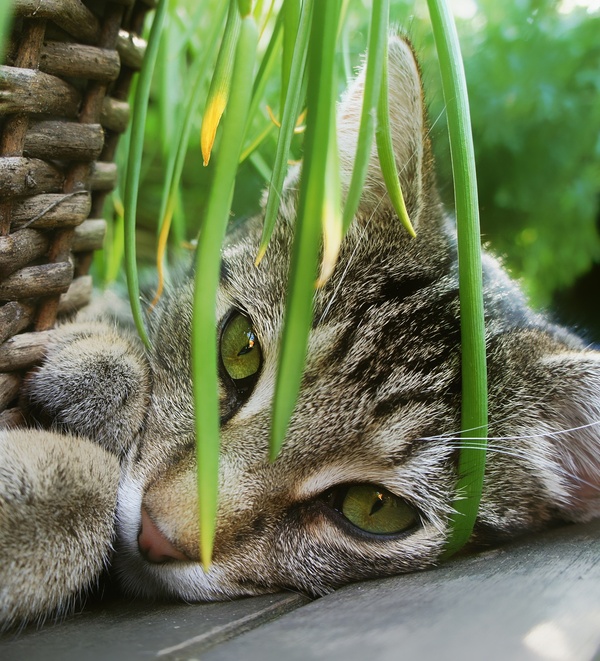
What Is Catnip, Anyway?
There’s a lot of confusion about catnip and the effect it can have on your pets. But before you start worrying about your cat tripping out, skipping school, and attending “legalize it” rallies with their buddies, let’s go through some fast facts on what it is and how it can impact your pet.
So, What Is Catnip?
Catnip, also known as Nepeta Cataria, is a species of leafy green plant in the same family as mint. Originally native to Europe, catnip was brought over to the U.S. as early as the 18th century. It contains an essential oil called nepetalactone that causes a behavioral response in some cats. Products containing catnip can come in numerous forms: fresh plants and dried leaves and stems, as well as incorporated in toys, chew treats, scratching posts, sprays, and more.
What Does It Do?
When sniffed or eaten, the oil in catnip (nepetalactone) binds to certain cats’ nasal receptors and can stimulate euphoric effects in the brain. These cats may experience a feeling of bliss, without any addictive or harmful effects. A very small minority may become aggressive, but instances are rare. In most cats, the effect manifests as playful excitement and increased activity; some cats also become more vocal and salivate, and their pupils may dilate. Grab your camera—you can expect them to make some funny faces as well.
Generally, the response is short-lived and lasts about 10-15 minutes, depending on the strength of the catnip, the amount, and duration of exposure.
SEE ALSO: The NYC Vaccinations for Your Cat
Who Does It Impact?
Only about two-thirds of cats actually respond to catnip, and the response is inherited genetically. Kittens and senior cats typically don’t feel the effects. If inherited, the sensitivity trait tends to develop around 6 months of age.
Even larger species of cat like tigers and lions can be sensitive to catnip. And if you feel inclined to looking up videos of their reactions...10/10, would recommend.
But Is It Safe?
Whether eaten, rolled in, or simply smelled, catnip is natural, non-toxic, non-addictive, and safe for cats. It’s impossible for a cat to overdose on catnip, although they can become desensitized to its effects if exposed too often.
As always, when introducing your pet to anything new, you should monitor their reaction during exposure before permanently integrating the product into both of your lifestyles. And if your cat is reactive to catnip, it’s not an encounter that you want to miss.
Where Can I Get Catnip?
Catnip is widely available in pet stores and online. Because your cat may ingest it, we recommend a variety that’s guaranteed organic and pesticide-free.
Psst…Is It Legal?
Absolutely. Meaning you can keep it in the open, although we suggest storing it in an airtight container in the freezer to maintain freshness.
Nearby? Bring 'em to Bond Vet, make an appointment online, or chat with our vets via telehealth.
Sources: